Liberation Day is celebrated on the 14th of June to mark the liberation of the Falkland Islands from the Argentinian military occupation in 1982. It’s also observed as the National Day and is a public holiday.
Each year, the Commemorative services begin in Stanley’s Christ Church Cathedral, the southernmost cathedral in the world which is also the parish church for South Georgia and British Antarctica Territories. A wreath laying ceremony is held at The Liberation Memorial and is followed by a military parade.
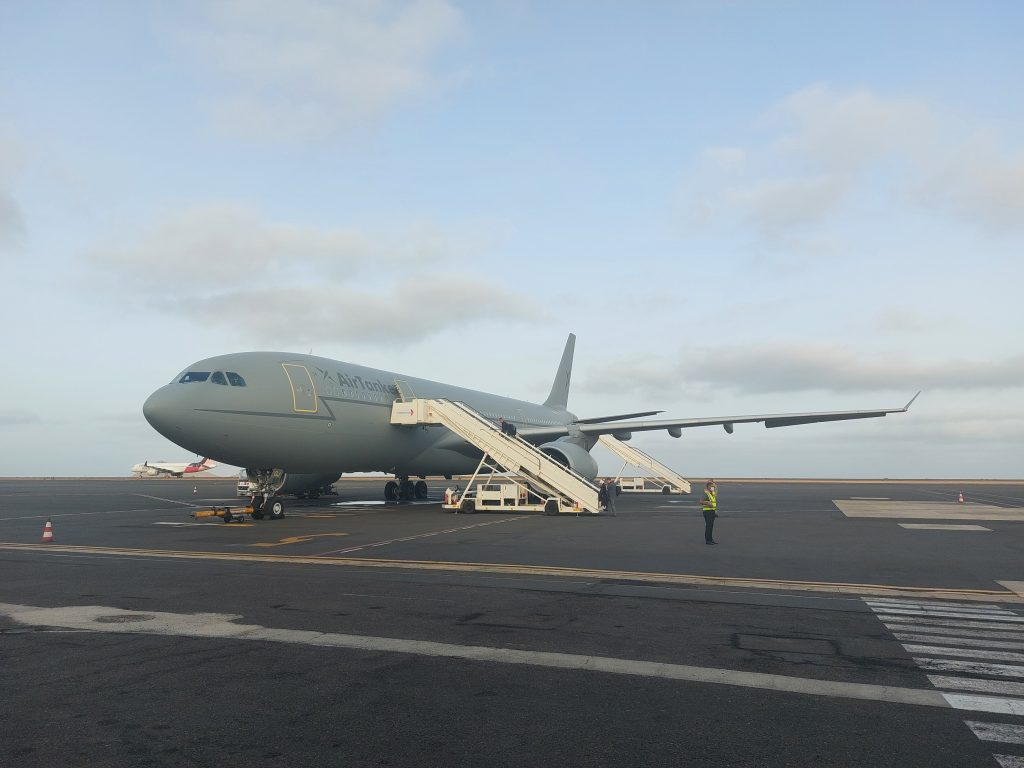
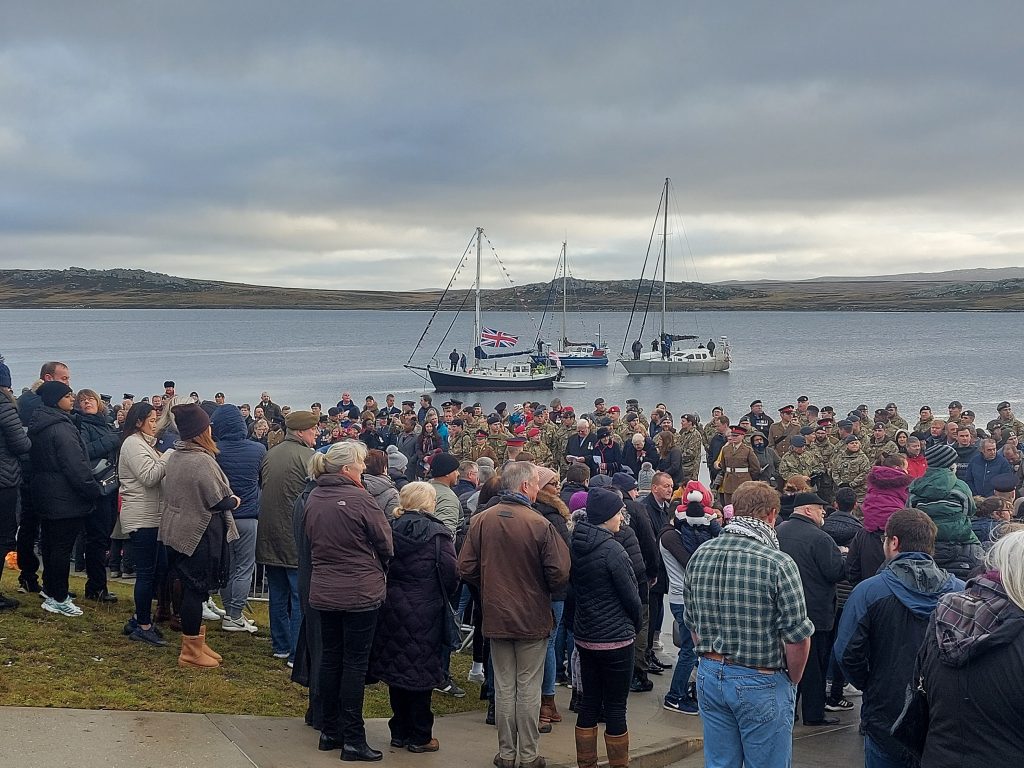
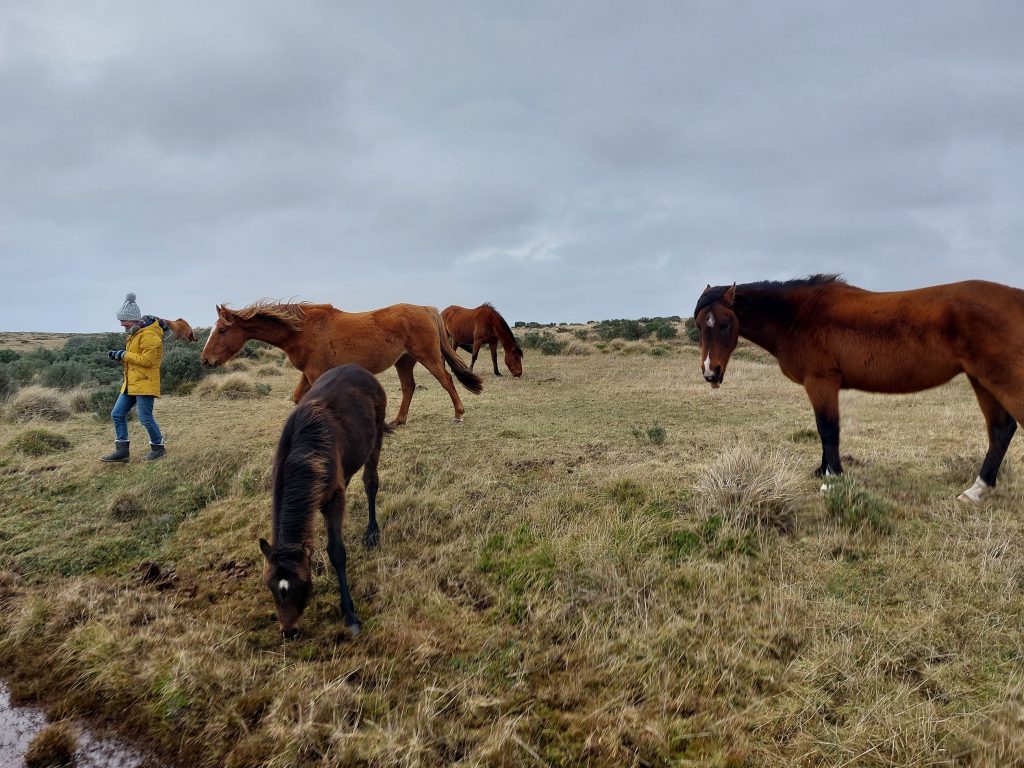
On the 15th June 2022, I was fortunate enough to experience the 40th anniversary of Liberation Day. The celebrations continued to the town hall where the Governor unveiled city statues, amongst friendly locals, military personnel and most importantly veterans.
THE INVASION OF THE FALKLAND ISLANDS – 1982 FALKLANDS WAR
The prelude to the invasion of the Falklands revolved around the disputed sovereignty of the islands, which were claimed by Argentina, despite having British had residents there for many generations. The dispute reached the United Nations in 1965, where they called for the issue to be resolved.
The British were confident over their sovereignty of the islands however, they were willing to cede the territory to Argentina. The UK government considered the Falkland Islands a nuisance as they prevented trade with South America.
With diplomacy failing throughout the years, and due to the political instability of the Argentine military Junta, the act of Argentinian marines raising their flag on South Georgia Island was considered the first act of war on 19th March 1982.
On the 2nd of April, fearing British reinforcement of the island, the Argentine forces started their invasion of the Falkland Islands. Although taken by surprise, British prime minister Margaret Thatcher ordered a naval task force and declared a war zone for 320 km/200 miles around the islands.
Decisive military actions including Operation Black Buck, Battle of Goose and the Fall of Stanley ultimately led to the defeat and surrender of the invading Argentine forces on the 14th of June 1982. The undeclared war lasted 74 days and took the lives of over 900 people, including 3 civilians.
To learn more about the aftermath of the Falklands/Malvinas War from the perspective of an Argentinian, click here.
HOW TO REACH THE FALKLAND ISLANDS
The Falklands are an archipelago located in the South Atlantic Ocean and are constituted two main islands, West Falkland and East Falkland. The capital, Stanley is closer to the South American continent than Europe.
There are a few ways to reach the Falklands, however many services are currently suspended. On my journey from the UK I was required to use the Airbridge starting from Royal Air Force (RAF) Brize Norton. Being a service operated by the Ministry of Defence (MOD), clearance was required, as the service operates only twice a week and passengers are prioritised.
Having travelled to over 50 countries and passing through many airports, I found something unique and interesting about using a military airport as a civilian. Signs to separating your liquids of 100mls into a small clear bags given way to signs to not carry a variety of military equipment is one indication.
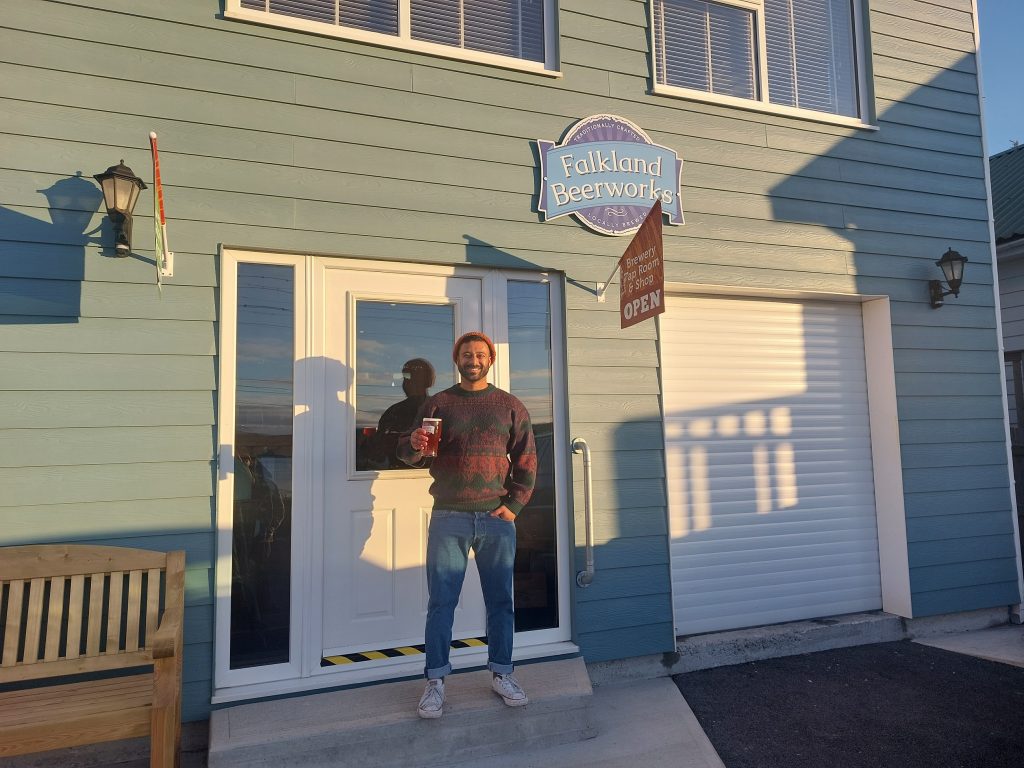
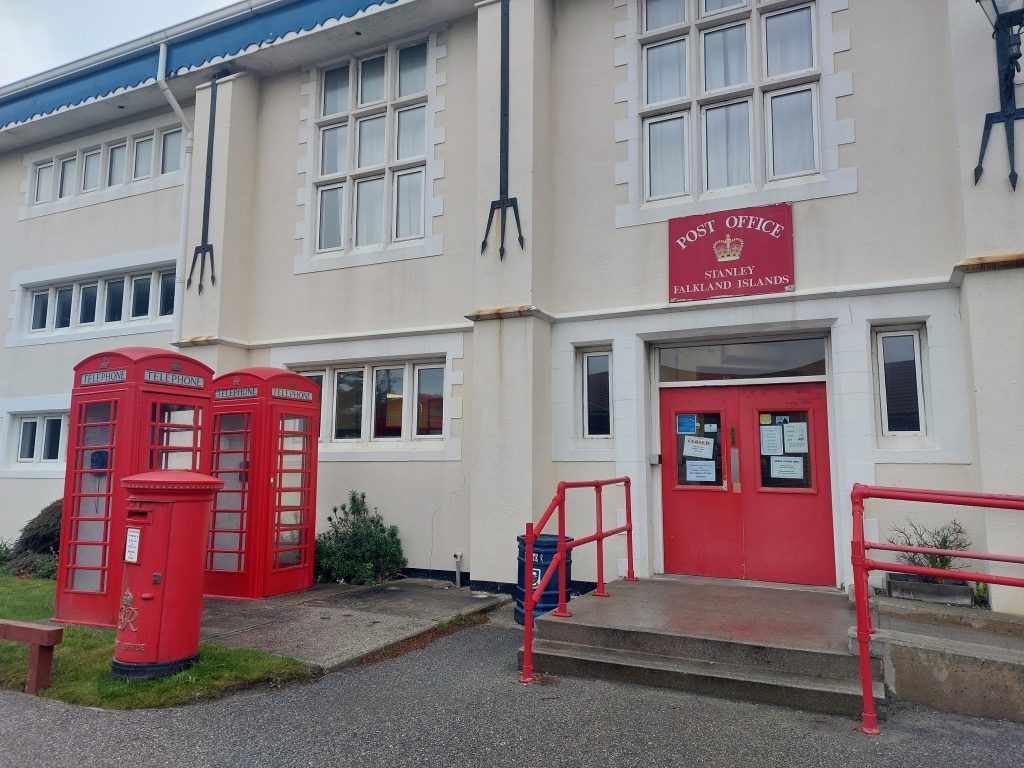
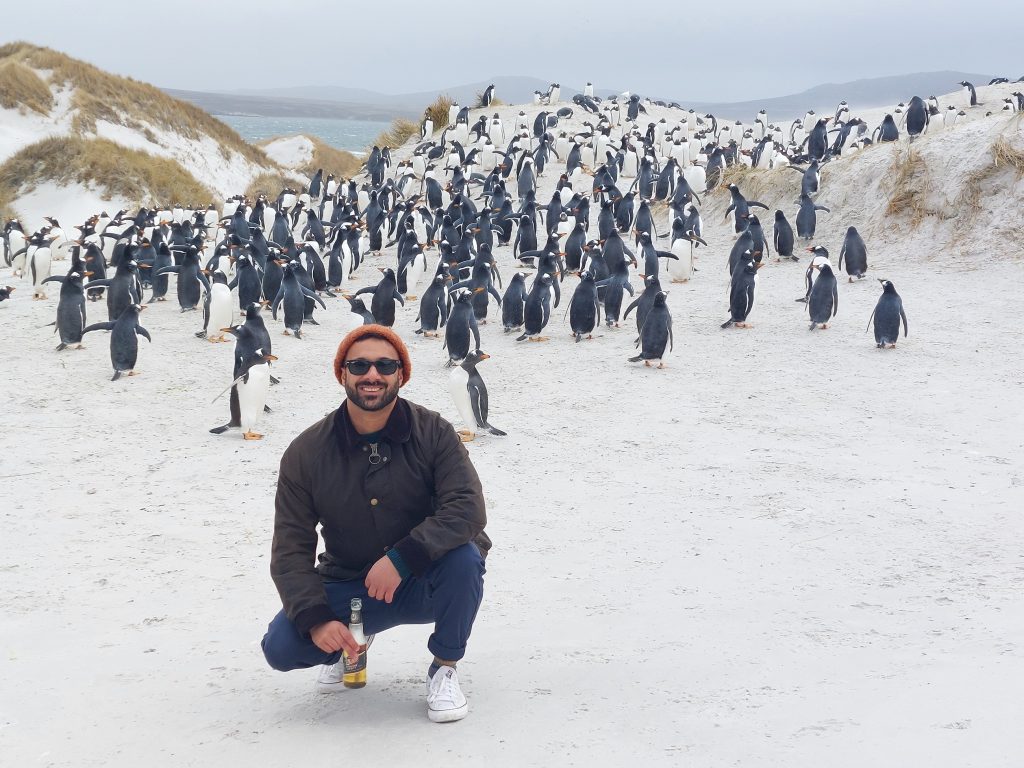
Another interesting aspect of Brize Norton, there’s no airport bar as technically MOD personnel using the Airbridge are still on duty. Many passengers on board are military personnel, scientists, government officials, Falklanders and civilians with specific job skills.
The interior of the aircraft is basic, with only a seat and tray. There’s no onboard entertainment. The 18 hour flight includes a 2 hour layover at Cape Verde, an island country located in the central Atlantic Ocean then finally arriving at RAF Mount Pleasant.
There are options available to fly from Santiago, Chile to the Falkland Islands. To learn more about the diplomatic considerations for air travel to the Falkland Islands, then click here.
LIVING IN THE FALKLAND ISLANDS
Some of the assets of the Falklands islands are limited internet, friendly locals, beautiful natural surroundings and excellent local beers, thanks to Jeff from Beerworks. After living and working in Central London for many years, where the quality of life unfortunately became nothing more than a rat race, to say moving to the Falklands Islands was a drastic change, is an understatement.
Secondly, the population is under 4000 people with just under 2500 residents living in Stanley. Everyone’s familiar with one another. Even if you’re new to the island, everyone waves to you when driving by – very different from London! Despite the small population, the Falklands was extremely diverse with residents coming from over 60 different countries.
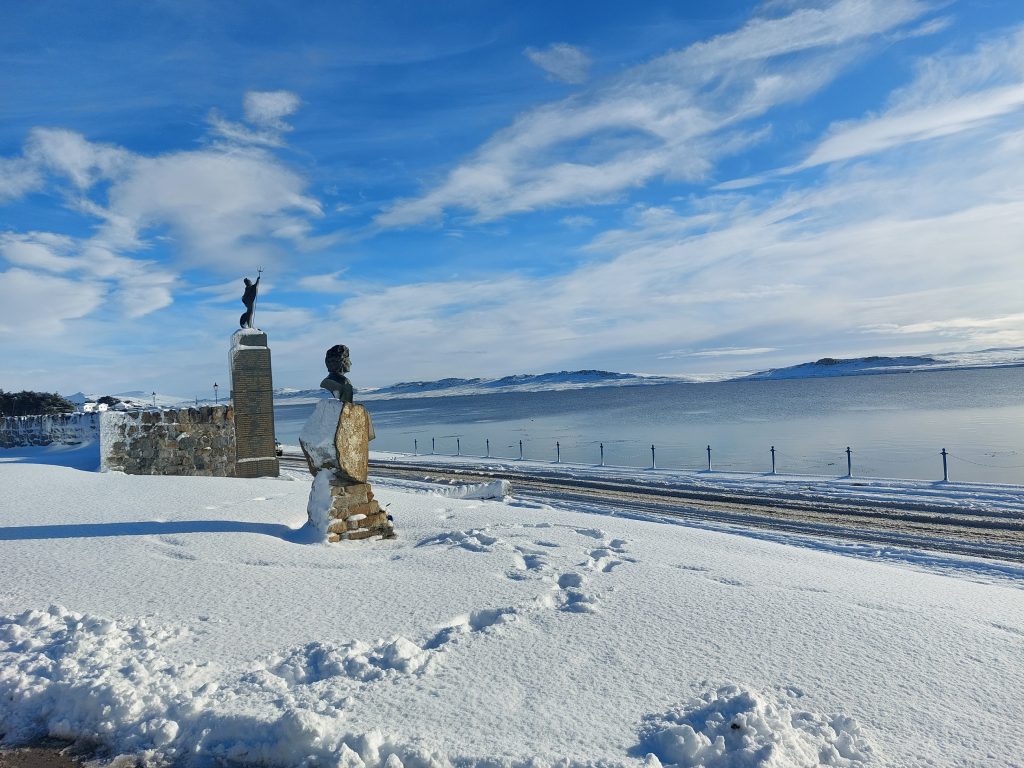
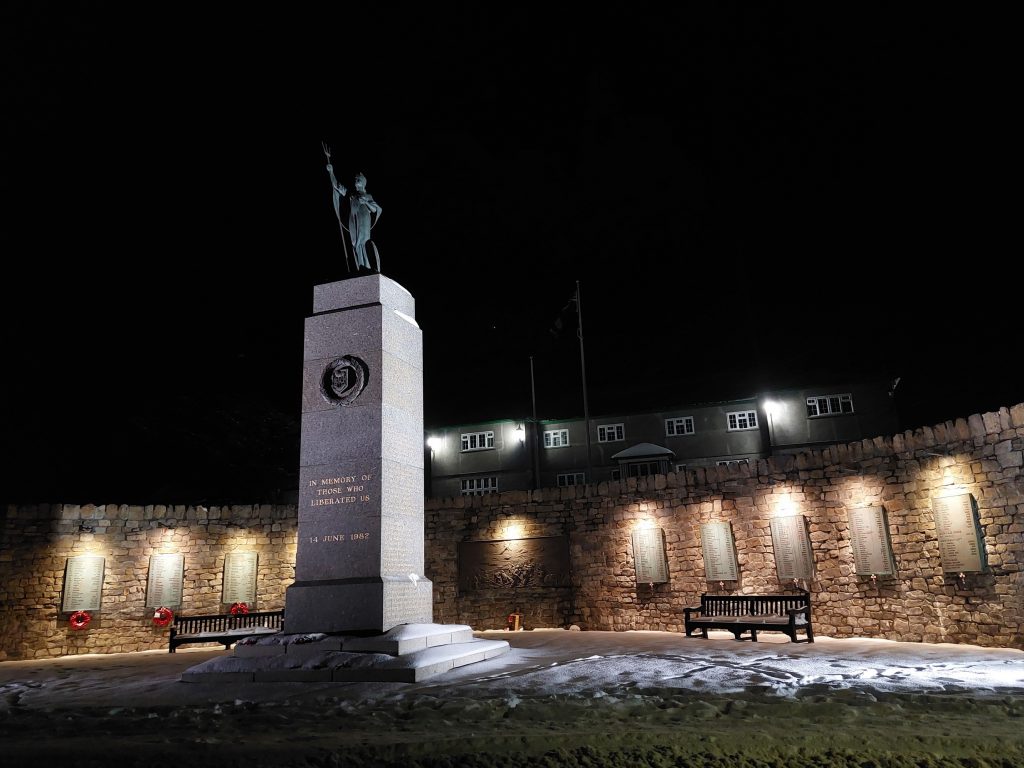
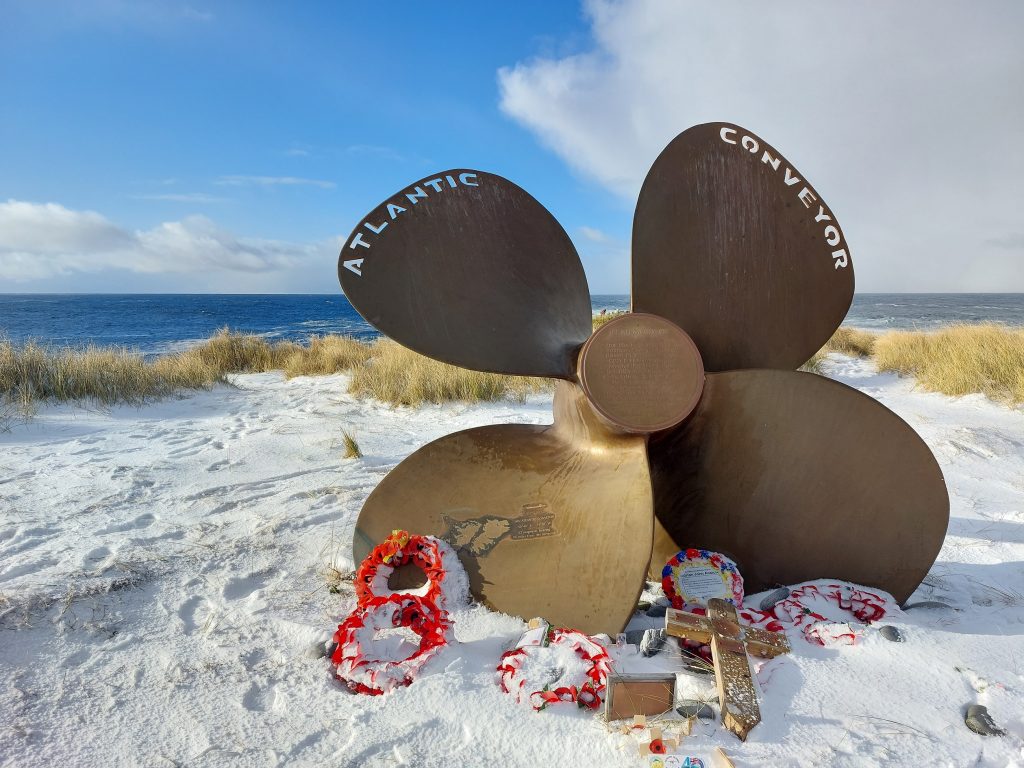
Lastly, the pristine nature is amazing, with beautiful beaches to stunning hiking trails, there’s always somewhere to explore. I spent most of my weekends enjoying the outdoors and enjoying the wildlife especially penguins and whales.
This is largely thanks to the effort and funding put in to de-mining the Islands, which were officially declared mine free on 14th November 2020. However with areas of the Islands being restricted, due to the mines, it created a natural sanctuary for penguins.
With the limited internet, the Island had a very active lifestyle, plus the local pubs, Victory Bar and Beerworks weren’t too bad either! Join YPT on our next adventure to see penguins and whales in Antarctica, click here.





